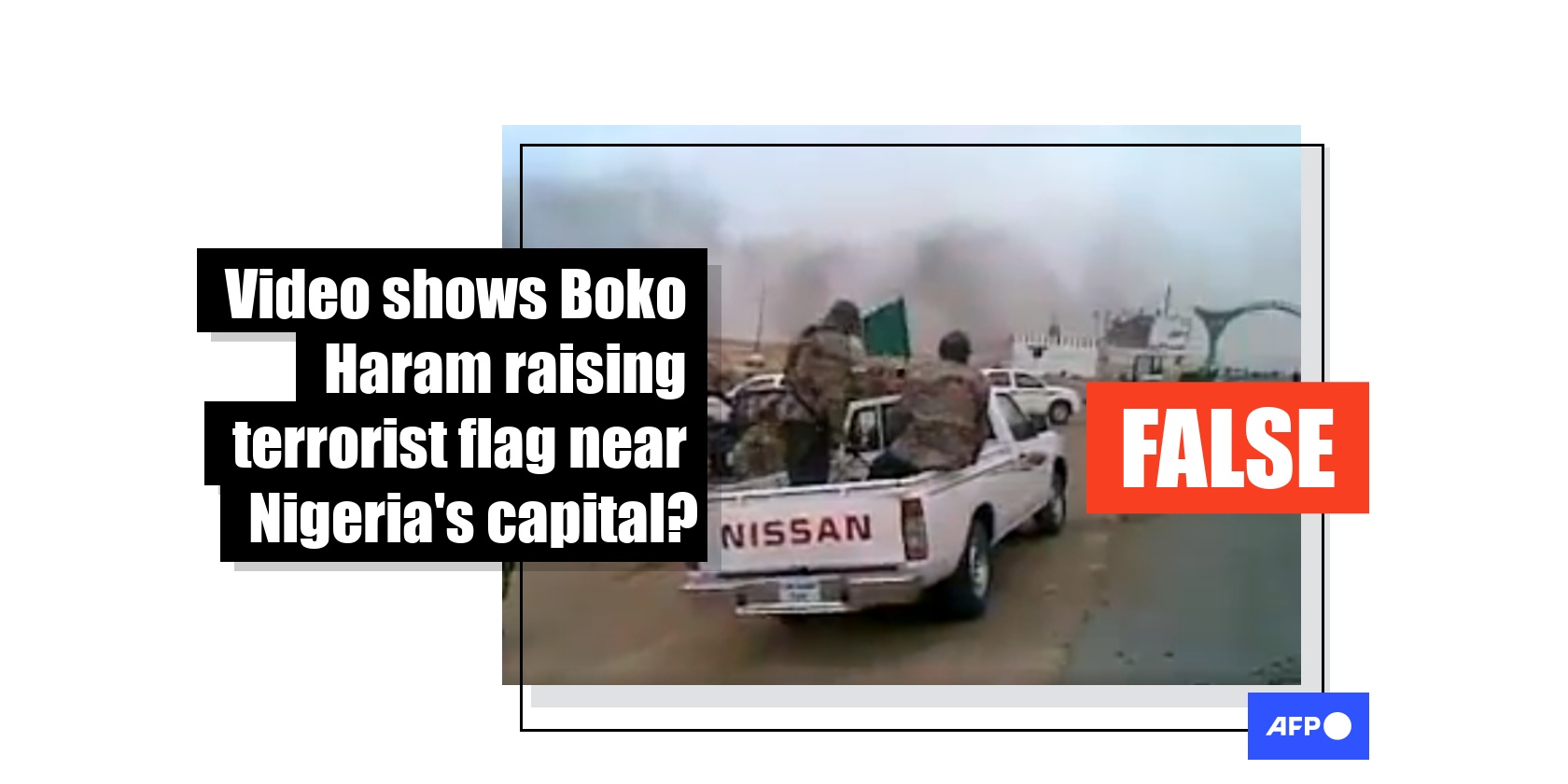
This 2011 video shows rebels during Libya's war, not Boko Haram fighters in Nigeria
- This article is more than four years old.
- Published on May 7, 2021 at 13:40
- 3 min read
- By Mayowa TIJANI, AFP Nigeria
The now-deleted video was viewed more than 300,000 times on Facebook with a caption on the post that read: “Boko Haram in Niger state”. It added that the terrorists had raised their flag and were just two hours drive from Nigeria's capital Abuja.
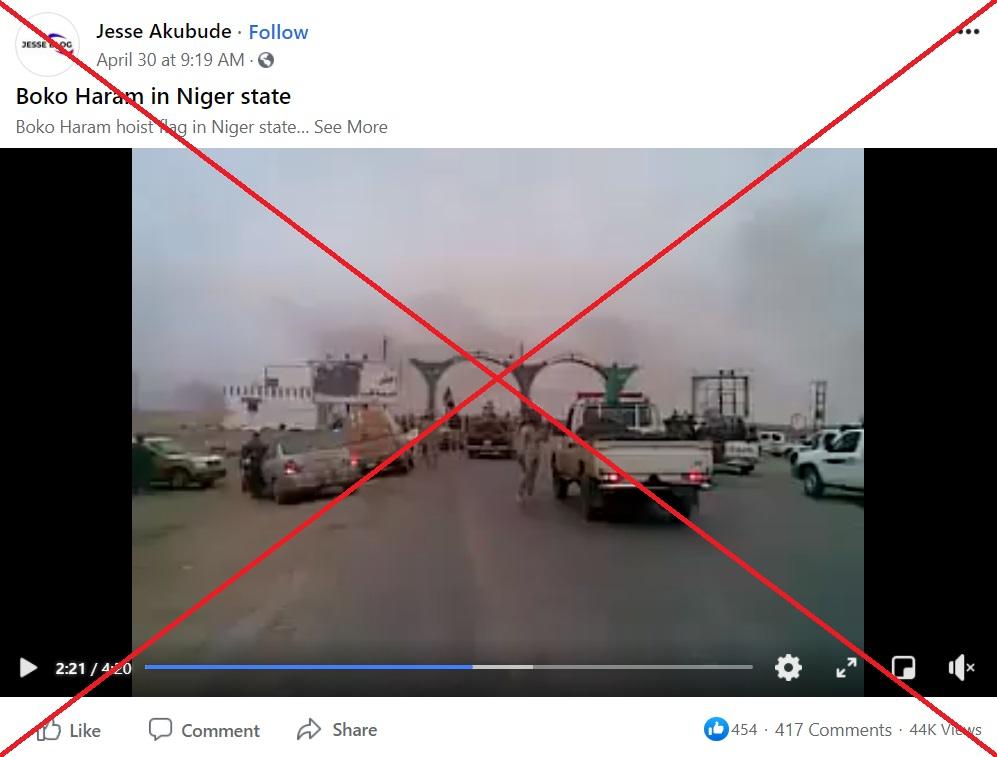
The same video was shared here and here, also claiming that Boko Haram had taken territory in central Nigeria, a few hundred kilometres from the nation’s seat of power.
Boko Haram is a terrorist group in Nigeria seeking to create an Islamic caliphate.
The video, however, is neither recent nor does it depict scenes in Nigeria.
Clip from Libya
A quick analysis of the video suggests that it was not shot in Nigeria.
To begin with, the language spoken in the video is Arabic only. Most Boko Haram propaganda videos are a mix of Arabic and Hausa, a local language spoken in large parts of northern Nigeria.
Secondly, the flags in the video are green and not the black of Boko Haram.
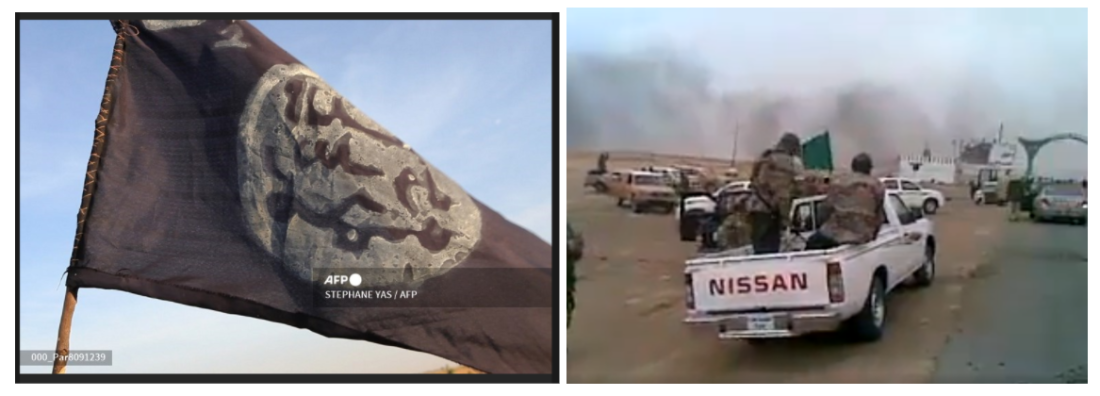
Firm clues
Further into the video, prominent green arches are visible over the road, suggesting a gateway into a city or town. AFP Fact Check ran a number of reverse image searches and found pictures of the arches taken in the Libyan city of Ajdabiya -- a location some Facebook users had already hinted at in the comments below the post before it was deleted.
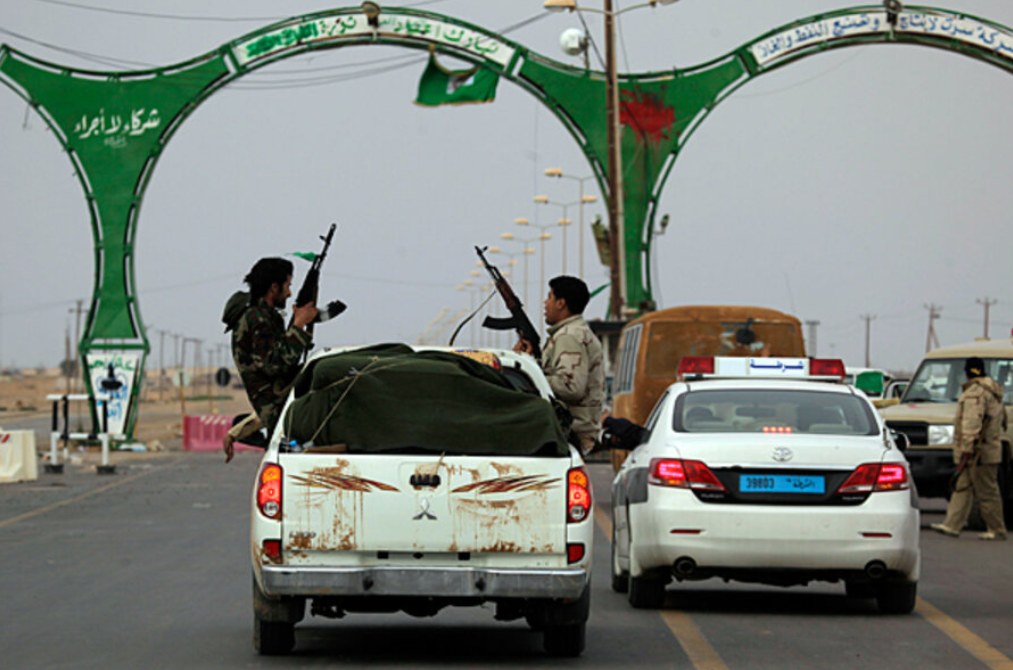
A separate search for images and videos from Ajdabiya uncovered this 10-year-old video from the Libyan Civil War, produced by Russian news agency RT and uploaded to YouTube. It provides a clear view of the arches and a small white building with black stripes, both visible in the Facebook video.

With the name of the city confirmed and approximate dates to go on, we searched AFP archives and found further images of the green arches in Ajdabiya, photographed in 2011 while Libya’s civil war was raging (see here, here and here).
When was the video shot?
Although the precise date of the video is unknown, the footage was captured at some point over four days in April 2011.
An AFP image from April 23, 2011, shows the green arches, known as the western gate in Ajdabiya, still standing.
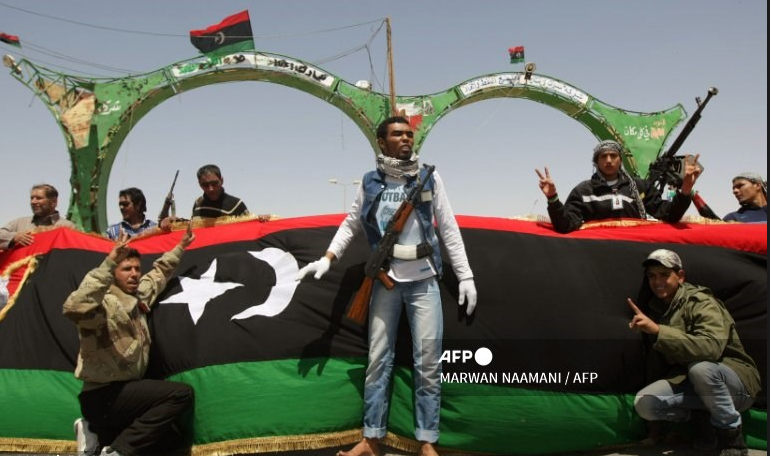
However, in this video by Al Jazeera from April 26, 2011, they have been pulled down.
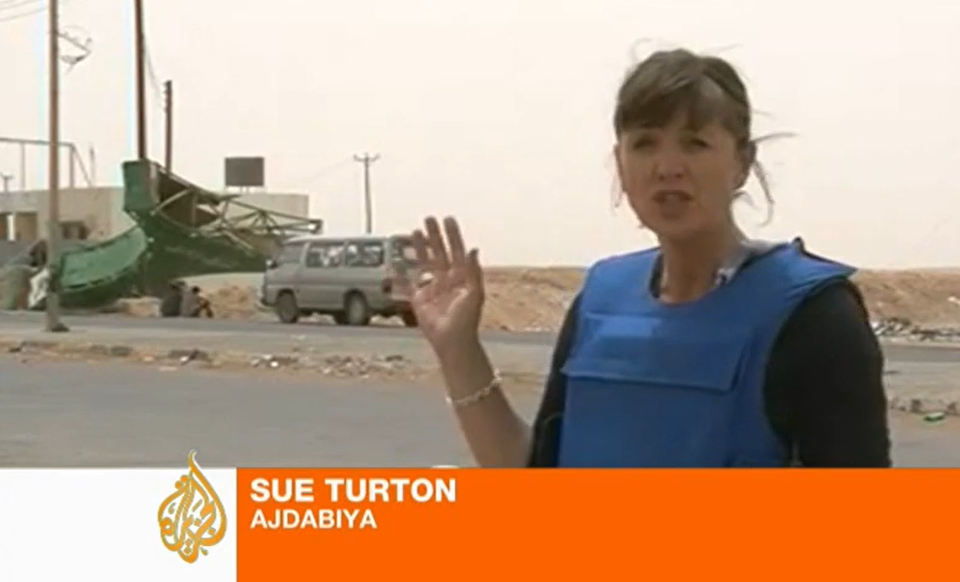
According to Al Jazeera, rebel soldiers fighting former Libyan leader Muammar Kadhafi demolished the gate because they believed the structures gave away their positions.
They were dismantled during a battle for control of Ajdabiya, an event widely reported in the media in 2011. An AFP reporter shared his experience of the fighting here.
Boko Haram in Niger
On April 27, 2021, the governor of Niger state Abubakar Bello said Boko Haram had taken over some communities in his state, displacing thousands of people in north-central Nigeria.
Speaking to journalists on April 26 in Niger, he said Boko Haram had abducted women and “they have already placed their flag in Kaure, which means they have taken over territory”.
The government of Nigeria’s Federal Capital Territory (FCT) has assured Nigerians that the region is safe.
Copyright © AFP 2017-2026. Any commercial use of this content requires a subscription. Click here to find out more.
Is there content that you would like AFP to fact-check? Get in touch.
Contact us
